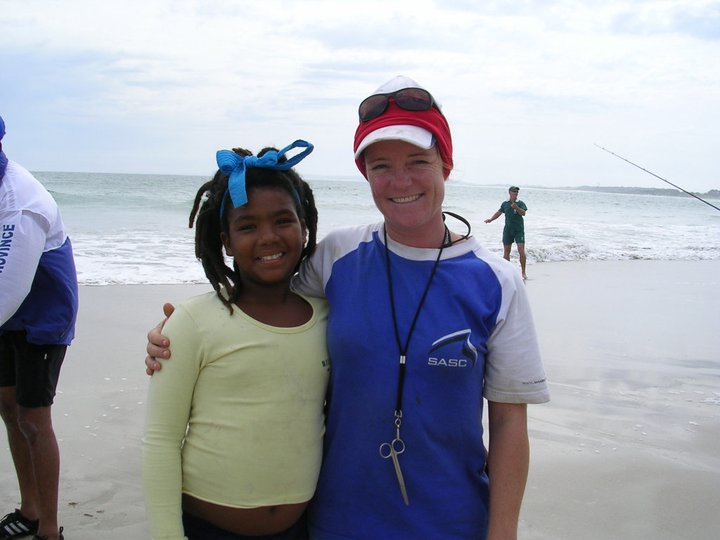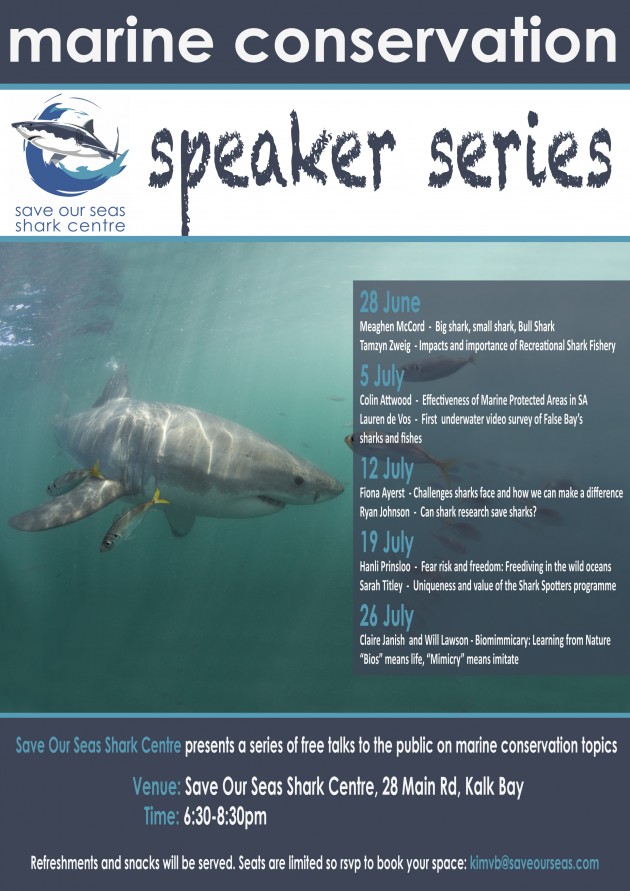Bull Sharks and Recreational Shark Fisheries – The first of the public talks at Save Our Seas
Marine Conservation Speaker Series – Informing the public on shark and marine conservation
The Marine Conservation Speaker Series kicks off tonight Thursday 28 June, with two Save Our Seas supported researchers who are currently working for the South African Shark Conservancy (http://www.sharkconservancy.org/), Meaghen McCord and Tamzyn Zweig.
Bull sharks (Carcharhinus leucas) are widely recognized for their ability to inhabit freshwater rivers, lakes and estuaries. Often described as one of the most dangerous and feared shark species, bull sharks form an important part of the collective human consciousness largely due to misunderstanding and an instinctive fear of the unknown. Fishing, habitat degradation and climate change are driving population declines of this species around the world leading to fundamental changes in the structure and function of ecosystems. Despite this, however, limited research on bull sharks exists in South Africa. With the aim of promoting better understanding of this apex predator, Meaghen McCord’s research is now underway to shed light on the ecology and behaviour of this iconic marine predator.
Tamzyn Zweig’s research looks at understanding the impacts and importance of the South African Recreational Shark Fishery.
Recreational angling for sharks (elasmobranchs) in South Africa is growing in popularity, although the number of participants in this fishery remains unquantified. Comprised of organized and informal anglers, the fishery targets a species complex similar to South Africa’s inshore commercial and subsistence fisheries, including include bronze whaler, broadnose sevengill, spotted gully, ragged-tooth, and smoothhound sharks. Within the organized angling sector more than 30 catch-and-release competitions target elasmobranchs each year. Growing evidence suggests elasmobranchs suffer lethal and sub-lethal stresses due to recreational angling, although this has never been quantified within the South African context. Post-release mortality is thought to be species-specific and little is known about the cumulative effects associated with exposure to stressors such as fight time, exposure, gear type, hook location and handling. This project therefore aims to quantify: the socio-economic value of the fishery; knowledge, behaviour and attitudes of recreational elasmobranch fishers; catch per unit effort fluctuations and changes in species composition over time; and species-specific metabolic and physiological responses to angling stressors.
These talks are free to the public and there are still spaces available to attend the remaining talks in the series, which will run weekly until the end of July 2012. Contact Kim von Brandis to reserve a seat and visit our website and facebook page for more information.
Venue: Save Our Seas Shark Centre, 28 Main Rd, Kalk Bay
Time: Thursday evenings 6:30-8:30pm
The aim of the Shark Centre is to encourage the conservation and awareness of sharks and marine life in the False Bay area through public educational programmes and activities, and by supporting scientific research.



